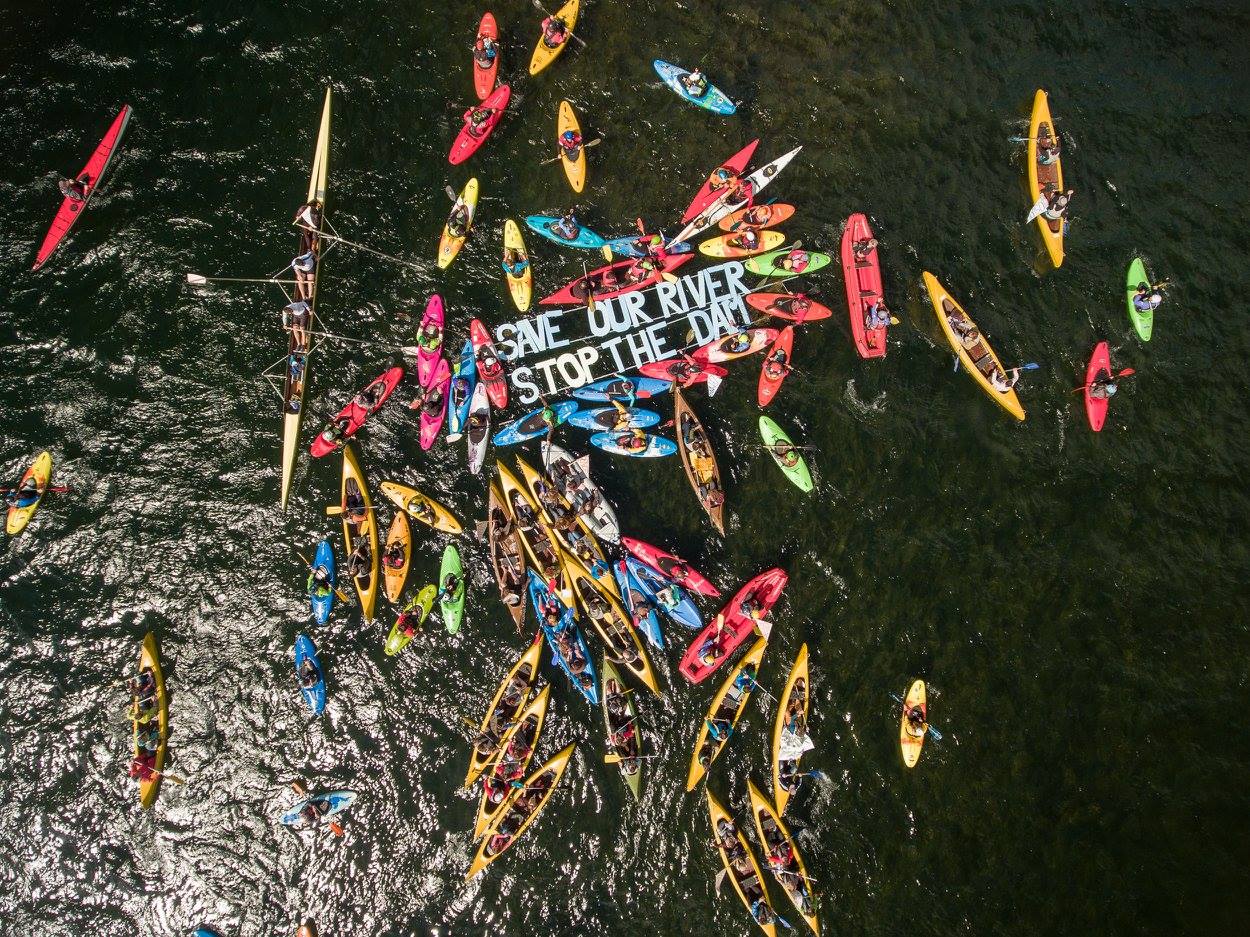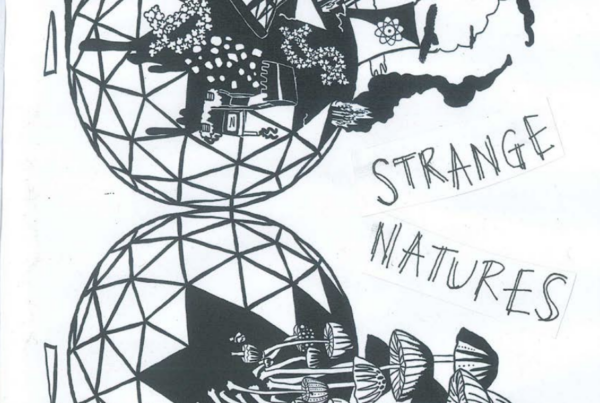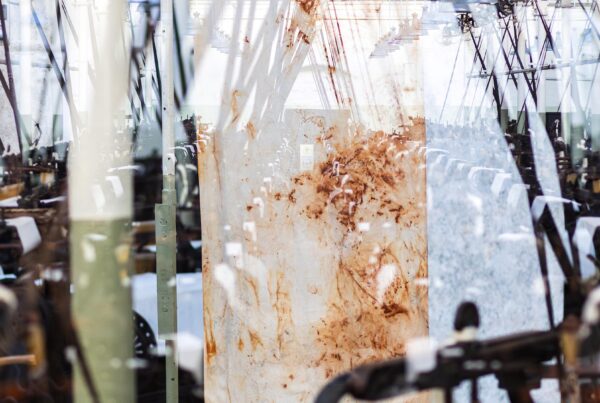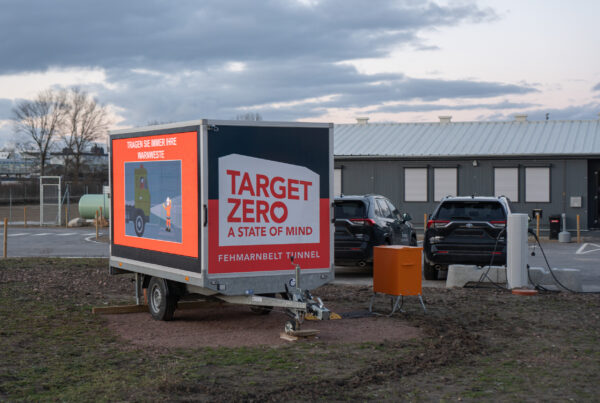A group of ‘kayaktvists’ from all over Europe recently paddled 390 km of Balkan rivers, in an exciting and creative expression of protest against the looming ‘dam tsunami’ on the peninsula.

About 150 paddlers opened the Balkan Rivers Tour at Bohinj Lake in Slovenia on Saturday, 16 April 2016. © Matic Oblak
Six countries, 23 rivers, 390 river kilometres: on Friday, May 14, a very unique activity ended in the Albanian capital of Tirana – the Balkan Rivers Tour. Over 35 days, kayakers from all over Europe paddled the most beautiful and most threatened rivers in the Balkans, in order to draw attention to the looming ‘dam tsunami’ on the peninsula. A total of over 500 paddlers from 18 nations participated in the activity. Headed by Rok Rozman, former Slovenian Olympic athlete and initiator of the tour, they covered almost 400 kilometres of waterway. Another 1550 non-kayakers participated in the special events of the tour.
The grand finale of the tour took place on the “queen of the Balkans”: the Vjosa in Albania – the last big wild river of Europe outside Russia. Amid the applause of hundreds of attendants, Rozman left his kayak in front of the office of Albanian Prime Minister, Edi Rama, during the closing event of the tour in Tirana. More than 1,000 people signed the boat in order to protest against the plans of damming the Vjosa. Instead, they demand that the Vjosa be declared as a national park. It would be the first Wild River National Park of Europe.

Along the way the activists collected more than 1,000 signatures against dam construction on Balkan rivers on a ‘petition kayak’, which was presented to Albanian prime minister Edi Rama on the last day of the tour. © Jan Pirnat

Vjosa, Albania: Paddlers were welcomed by numerous people, among them residents, politicians, musicians, and representatives of nature conservation organisations. © Jan Pirnat

May 20, 2016: Protest in Tirana, Albania: several hundred people participated at this closing event of the tour in the centre of the city. They demanded to stop the dam plans on the Vjosa and to establish a Vjosa National Park instead. © Andrew Burr
“For me and the Balkan Rivers Tour team, this tour was certainly the most intense and, at the same time, most definitely the best time of our lives! The support we received from local communities, anglers, nature conservationists and even politicians was astounding and inspiring. Together we will save these rivers” – Rok Rozman upon his return to Slovenia.
The tour was following a very special Balkan route: a route that leads through breathtaking river landscapes from Slovenia, to Croatia, Bosnia and Herzegovina, Montenegro, Macedonia, to Albania. A total of 23 rivers were paddled, all of which threatened by hydro power projects. In the entire region between Slovenia and Albania, plans for 2,700 hydropower plants are currently in place.

Valbona, Albania: even though this river is located inside a national park, hydropower projects on this river are in the pipeline. A total of 113 hydropower plants are projected to be built in national parks in the Balkans. © Jan Pirnat
“The Blue Heart of Europe beats on the Balkans. However, it is at risk of a heart attack. We will do anything to stop this dam craze. The kayakers’ activity was a tremendous support for our initiative” – Ulrich Eichelmann, coordinator of the Save the Blue Heart of Europe campaign at Riverwatch.
“The wild rivers in the Balkans are the crown jewels of the European nature treasury. The multitude and diversity of natural and unimpaired river landscapes is without par in Europe. However, these unique natural treasures are now being surreptitiously sacrificed for short-term profits. This we must prevent” – Gabriel Schwaderer, CEO of EuroNatur.
Background information
- The following 23 rivers were paddled during the Balkan Rivers Tour: Sava Bohinjka, Sava Dolinka, Sava, Soča, Koritnica and Učja (Slovenia), Zrmanja (Croatia), Unac, Una, Sana, Neretva and Buna (Bosnia-Herzegovina), Morača and Tara (Montenegro), Radika, Tresonechka Reka and Mala Reka (Macedonia), Valbona, Osum, Langarica, Drino, Bence, and Vjosa (Albania).
- The kayakers accompanying the tour (in sections) were from 18 countries: Slovenia, Germany, Austria, Italy, France, Croatia, Montenegro, Macedonia, Bosnia and Herzegovina, Netherlands, Albania, Argentina, USA, Finland, Norway, Great Britain, Greece, Spain.
- Find all the photos of the tour in the Balkan Rivers Tour gallery.
- Find video clips of the tour click here.
- The Balkan Rivers Tour was an activity organized within the framework of the Save the Blue Heart of Europe campaign, which was launched by EuroNatur and Riverwatch in order to protect the Balkan rivers from the imminent destruction due to hydropower development. The Balkan Rivers Tour was a joint initiative by Leeway Collective, EuroNatur, Riverwatch and WWF Adria and was supported by Patagonia, Mava Foundation and Manfred-Hermsen-Stiftung.
- For more information about dam construction on Europe’s last wild rivers read read one of our previous posts and visit the Save the Blue Heart of Europe campaign website.
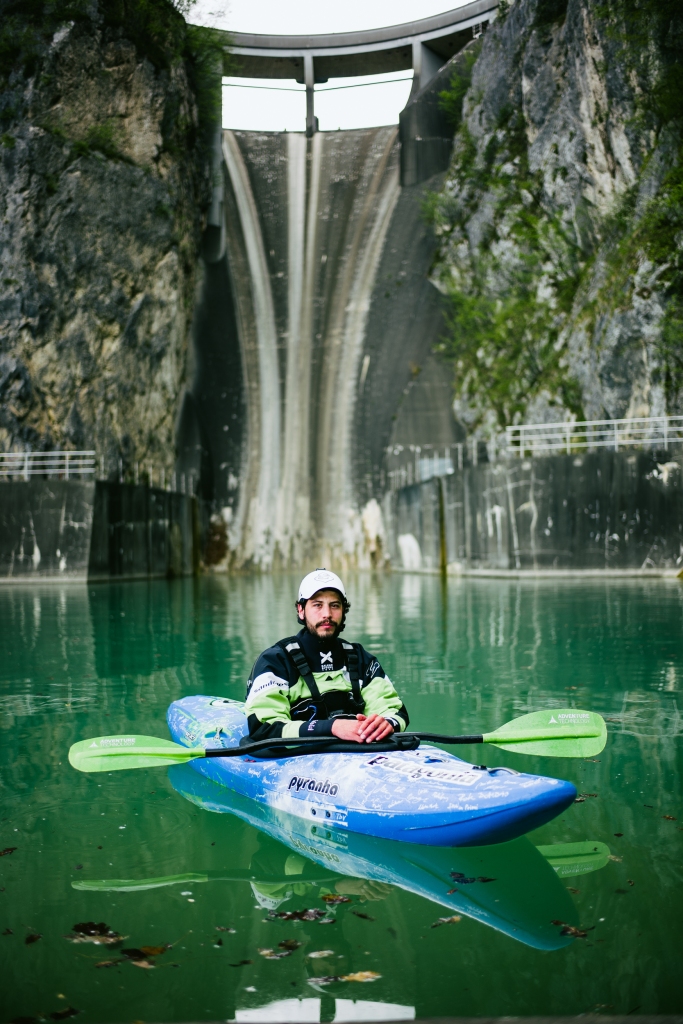
Rok Rozman, kayaktivist, former Slovenian Olympic athlete and initiator of the tour, in front of the hydropower project Moste, the tallest dam in Slovenia. © Jan Pirnat
Contacts
Theresa Schiller (EuroNatur), [email protected], +49 (0)7732-9272-12
Press contact: Katharina Grund [email protected] +49 (0) 7732-9272-10)
Rok Rozman (Leeway Collective), [email protected], +386 51 421 303
Ulrich Eichelmann (Riverwatch), [email protected], +43 676 662 1512
This press release was originally published by the Save the Blue Heart of Europe campaign on 31 May 2016.


